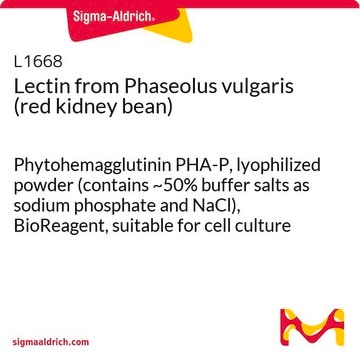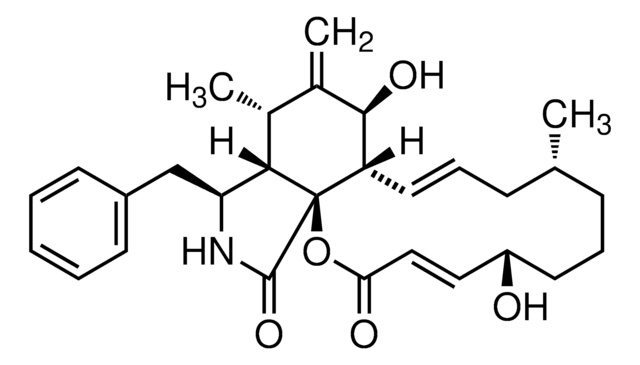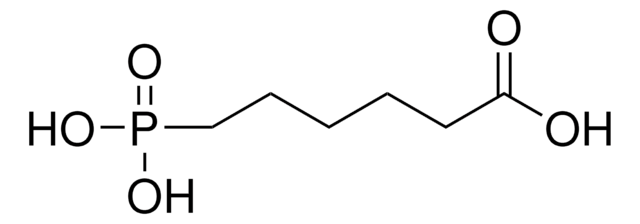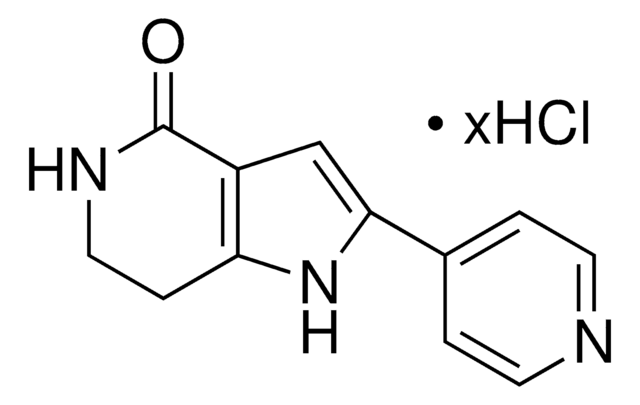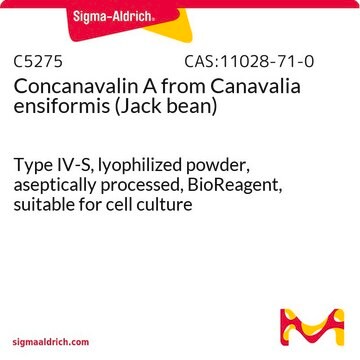11082132001
Roche
Phytohemagglutinin-M (PHA-M)
from Phaseolus vulgaris
Synonym(s):
PHA-M
Sign Into View Organizational & Contract Pricing
All Photos(1)
About This Item
UNSPSC Code:
23201100
Recommended Products
Quality Level
sterility
non-sterile; 0.2 μm filtered
form
lyophilized
packaging
pkg of 20 mg
manufacturer/tradename
Roche
application(s)
hematology
storage temp.
2-8°C
General description
Phytohemagglutinin (PHA), the lectin extract from the red kidney bean. PHA consists of five isolectins (L4E0, L3E1, L2E2, L1E3, L0E4) each being a tetramer held together by noncovalent forces. The subunits L (leukocyte reactive) have a high affinity for lymphocyte surface receptors, but little for those of erythrocytes, and are responsible for the mitogenic properties of the isolectins. E (erythrocyte reactive) is responsible for the erythrocyte-agglutinating properties.
Application
Phytohemagglutinin (PHA) is a potent mitogen used to stimulate cell proliferation in lymphocyte cultures.
Phytohemagglutinin-M (PHA-M) has been used in the activation of Jurkat and primary cells. It has also been used to treat polymorphonuclear blood cells(PMBCs)
Biochem/physiol Actions
Phytohemagglutinin (PHA) has mitogenic and potent cell agglutinating activities. It binds to T-cell membranes and stimulates cell division and metabolic activity. PHA has the ability to stimulate close contacts between cell membranes.
Specifications
Biological activity: <10 μg/ml for maximal stimulation of DNA synthesis (BrdU incorporation) with human peripheral blood lymphocytes.
Preparation Note
Working concentration: 2 - 10 μg/ml
Approximately 2 - 10 μg/ml for the stimulation of peripheral blood lymphocytes
Storage conditions (working solution): The reconstituted solution is stable for 2 weeks at 2 to 8 °C or for several months when stored in aliquots at -15 to -25 °C.
Approximately 2 - 10 μg/ml for the stimulation of peripheral blood lymphocytes
Storage conditions (working solution): The reconstituted solution is stable for 2 weeks at 2 to 8 °C or for several months when stored in aliquots at -15 to -25 °C.
Reconstitution
PHA-M should be reconstituted in sterile double-dist. water (final concentration: 2–10 mg/ml). Further dilution with medium or PBS (phosphate buffered saline).
Other Notes
For life science research only. Not for use in diagnostic procedures.
Storage Class Code
11 - Combustible Solids
WGK
WGK 1
Flash Point(F)
does not flash
Flash Point(C)
does not flash
Certificates of Analysis (COA)
Search for Certificates of Analysis (COA) by entering the products Lot/Batch Number. Lot and Batch Numbers can be found on a product’s label following the words ‘Lot’ or ‘Batch’.
Already Own This Product?
Find documentation for the products that you have recently purchased in the Document Library.
Customers Also Viewed
TRIM28 promotes HIV-1 latency by SUMOylating CDK9 and inhibiting P-TEFb
Ma X, et al.
eLife, 8, e42426-e42426 (2019)
Julia Kölle et al.
iScience, 25(6), 104440-104440 (2022-06-17)
The cytokine interleukin-3 (IL-3) acts on early hematopoietic precursor cells. In humans, Treg cells secrete IL-3 and repress inflammatory cells except for basophils. The present study aims to elucidate the contribution of IL-3 in the development and the course of
Polyfunctional Melan-A-specific tumor-reactive CD8+ T cells elicited by dacarbazine treatment before peptide-vaccination depends on AKT activation sustained by ICOS
Ornella Franzese
Oncoimmunology, 5(5), e1114203-e1114203 (2016)
Gilles Darcis et al.
Cell reports, 30(7), 2284-2296 (2020-02-23)
The HIV latent reservoir forms the major hurdle to an HIV cure. The discovery of CD32 as marker of this reservoir has aroused much interest, but subsequent reports have challenged this finding. Here, we observe a positive correlation between the
Human-specific adaptations in Vpu conferring anti-tetherin activity are critical for efficient early HIV-1 replication in vivo
Yamada E, et al.
Cell host & microbe, 23(1), 110-120 (2018)
Our team of scientists has experience in all areas of research including Life Science, Material Science, Chemical Synthesis, Chromatography, Analytical and many others.
Contact Technical Service


